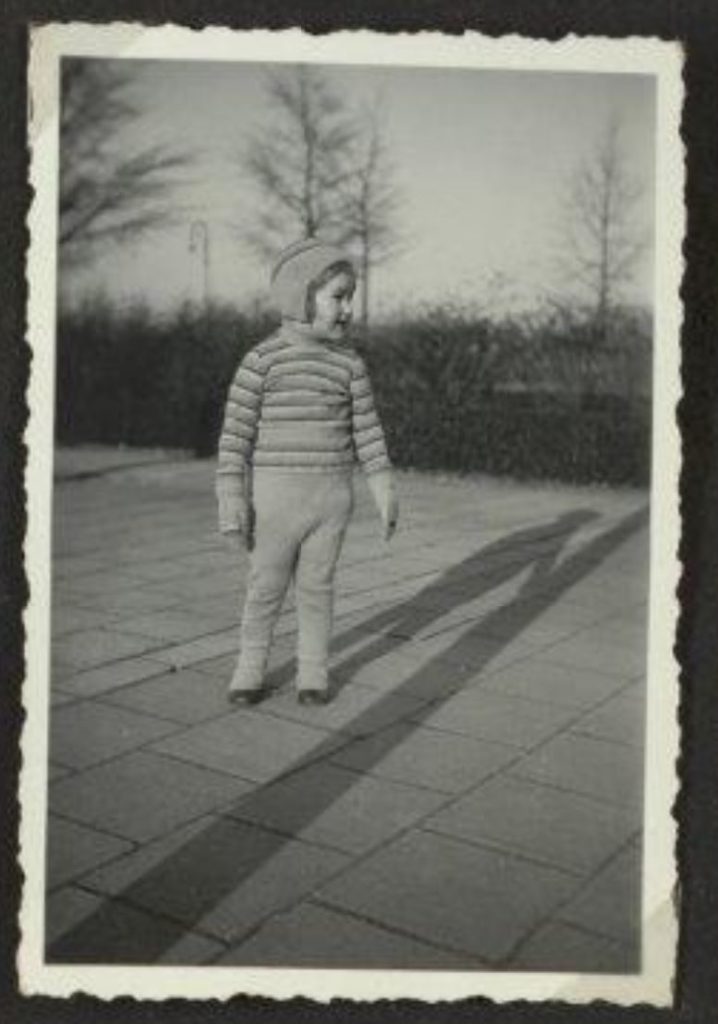
Wiener Holocaust Library Collections, courtesy of Tamara Finkelstein.
In 1943, Mirjam Wiener, the daughter of Dr Alfred Wiener, founder of The Wiener Holocaust Library, was deported from Amsterdam to Westerbork, where she spent seven months before being deported to Bergen-Belsen. The Dutch Railways (NS, Nederlandse Spoorwegen) were involved in the transportation of Jews, Roma and Sinti towards concentration or extermination camps, and since November 2018, the NS have been working on compensating the survivors or their next of kin. Mirjam’s children, Daniel, Anthony and Tamara, received compensation from the NS for the part that the company played in their mother’s deportation to Westerbork. The children felt that the most fitting way to remember their wonderful mother, who herself knew and loved The Wiener Library, was by gifting this money towards its mission.
All of us at the Library are extremely grateful for this generous donation which has come at an extremely important time when the Library and all charities are feeling the impact of the Coronavirus pandemic. This donation will enable us to continue assisting family research, cataloguing and preserving documents, curating exhibitions, running online events, and helping historians remotely.
We would really love to share Mirjam’s story during the years of her deportation, as it highlights just why it is so important to both remember and learn from the past:
Mirjam Emma was born on 10 June 1933 in Berlin. Mirjam had two older sisters, Ruth Hannah (born in 1927) and Eva Elise (born in 1930). Shortly after Mirjam’s birth, in the autumn of 1933, the family relocated to Amsterdam to avoid persecution under the Nazis. The family thrived; Mirjam, Eva and Ruth attended school, joined local clubs and learned Dutch.
However, as international tension increased and war became more likely, Holland became less safe for the family. In August 1939, Alfred Wiener made arrangements to move his library and activist work to London. Unfortunately, following the outbreak of the Second World War shortly afterwards, Margarethe, Ruth, Eva and Mirjam were unable to join him. The family was trapped in Holland, and became subject to increasing Nazi persecution and oppression. On 20 June 1943, the family was detained and sent by NS train to Westerbork transit camp. In January 1944, after seven months in Westerbork, the family was deported to Bergen-Belsen. In January 1945, a rare opportunity to be part of a prisoner scheme between the Nazis and the United States appeared. The Wieners were chosen for this exchange and transported to Switzerland. Shortly afterwards, Margarethe was too ill to continue travelling. On 25 January 1945, she was taken into a Swiss hospital and sadly died just a few hours later. Soon after, Ruth, Eva, and Mirjam boarded a Red Cross ship, The Gripsholm, bound for New York where they were reunited with their father.
After her liberation, Mirjam settled in London, where she met and married the engineer and scientist Ludwik Finkelstein, a fellow refugee. Together they had three children, Daniel, Anthony and Tamara.
You can visit our online learning resource, The Holocaust Explained, to read more about the Wiener family during the Holocaust and learn about the creation of The Wiener Holocaust Library.
Please consider supporting the Library
The Library is very fortunate to have such a strong supporter base and the support we have received during the pandemic has been so greatly appreciated. Mirjam’s donation will enable the Library to thrive at a very uncertain financial time, and enable us to do so in Mirjam’s memory. However, we are realistic that the impact of the pandemic will continue to be felt for the foreseeable future, meaning further support is vital.
We kindly ask you to consider the impact a donation from you could make to the Library during these uncertain times.
Help us by making a donation today.





